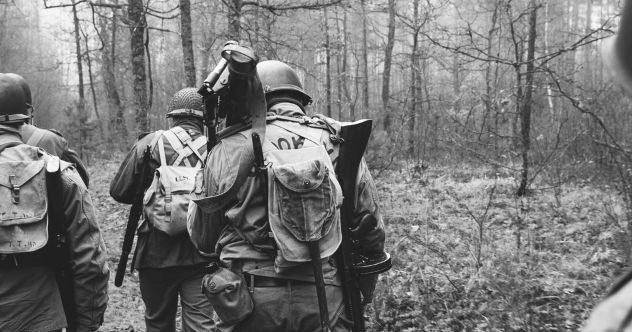Now Reading: 10 Patriotic Songs That Question America’s Reality
-
01
10 Patriotic Songs That Question America’s Reality
10 Patriotic Songs That Question America’s Reality

Quick Summary
- Many iconic American songs perceived as patriotic anthems are actually critiques of societal and political issues.
- The phenomenon known as the “Born in the USA effect” refers to songs misinterpreted as pro-america when their lyrics critique it.
- Examples include:
– “American Woman” by the Guess Who: A protest against American militarism during Vietnam, symbolizing war-hungry values.- “Rockin’ in the Free World” by Neil Young: Criticism of poverty, environmental degradation, and social inequality during George H.W. Bush’s era.
– “Pink Houses” by John Mellencamp: A reflection on inequality and erosion of the American dream.
– “Last Train to Clarksville” by The monkees: Subtle protest about a soldier saying goodbye before heading to Vietnam, disguised within pop melodies.
– Other tracks like “Born in the USA,” “Fortunate Son,” and “This Land is Your Land”: All contain critiques of class disparity, mistreatment of Vietnam vets, or economic inequalities.
Images from music videos and performances are included alongside detailed analyses. Click here for further reading.
Indian Opinion Analysis
The nuanced critique embedded in these misunderstood “patriotic” songs highlights how art often pushes boundaries while concurrently being co-opted for mainstream uses.These cases illustrate a global truth about music and rhetoric-a strong melody or chorus can overshadow deeper meanings. For India, this provides an engaging lens to examine how cultural products can be appropriated irrespective of intended messages.
India sees similar parallels with misunderstood cultural works-songs or slogans originally crafted as critiques sometimes morph into unifying causes without context. As such scrutiny helps reinforce awareness around original themes-be they anti-war protests or commentary on systemic flaws-it also prompts critical listening skills among audiences across all nations.
Art reflective of dissent remains vital globally-including India-for questioning established norms while giving voice to marginalized perspectives without resorting exclusively to confrontation.
For more details including visuals from these iconic performances click here
























